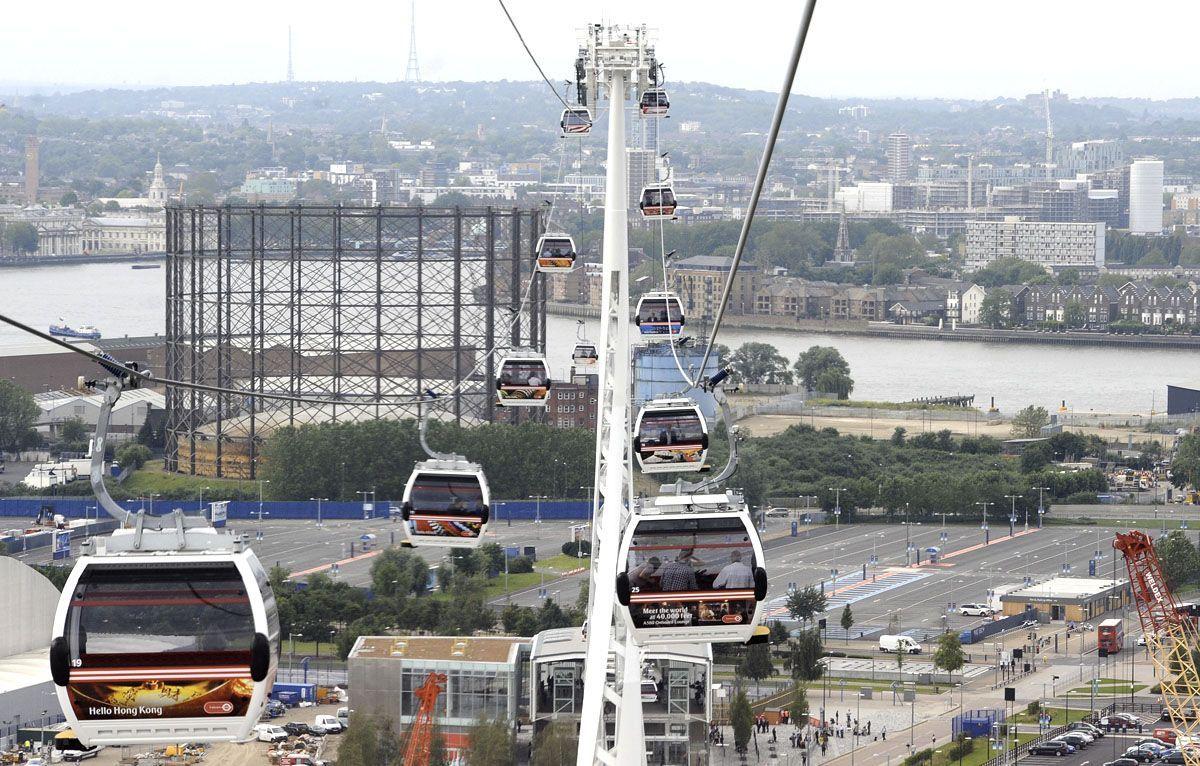A $100m London cable car system branded by Dubai’s Emirates Airline has just four regular users, according to figures disclosed by the UK capital’s transport body.
The 1.1km-long Emirates Air Line, which connects the Greenwich Peninsula and Royal Docks in east London, opened to major fanfare just prior to the Olympic Games in June 2012. However, it has seen commuter numbers dwindle rapidly in the time since.
Figures from Transport for London (TfL) obtained by Snipe under a Freedom of Information Act request, showed that for the week ending 19 October, 23,029 journeys were made on the Air Line, compared to 42,463 in the same period a year ago.
TfL also confirmed that just four people had used the Oyster electronic ticketing system to make five or more journeys on the Air Line during the same week.
The busiest day during that week was 19 Saturday, when 6,266 commuters used the Air Line, compared to 16,180 on the same day 12 months ago. The quietest day saw only 1,864 people use the Thames river crossing.
TfL’s Head of the Emirates Air Line, Danny Price said: “’The Emirates Air Line is one of London’s success stories and since opening in June 2012 it has carried over 3.1 million passengers. We are seeing people use the Emirates Air Line throughout the day to get to and from work, leisure activities in the area and just for the experience.
“The Emirates Air Line continues to cover its operating costs while encouraging people to visit Greenwich and the Royal Docks. Commuter use will increase further with the arrival of new homes in the area and the £1bn Asian Business Port development planned for London’s Royal Albert Dock.”
Earlier this year, TfL said it was seeking new sponsors for its Emirates Air Line cable car, which faces a deficit in costs of more than £18m ($27m).
A TfL spokesperson told Arabian Business that the transport authority was seeking additional funds to cover £18.6m outstanding in initial planning and construction costs, as well as ongoing maintenance.
Under the terms of the deal with Emirates, London received £1m on the date of execution of the sponsorship deal, a further £2.5m in April 2012 and £6.85m on commencement of operations.
The deal is structured so that TfL will receive £2.85m ever year for the next nine years. The Dubai-based carrier is currently the only sponsor for the project.
TfL said that most of the outstanding capital costs for the project related to design, land acquisition and risk.






